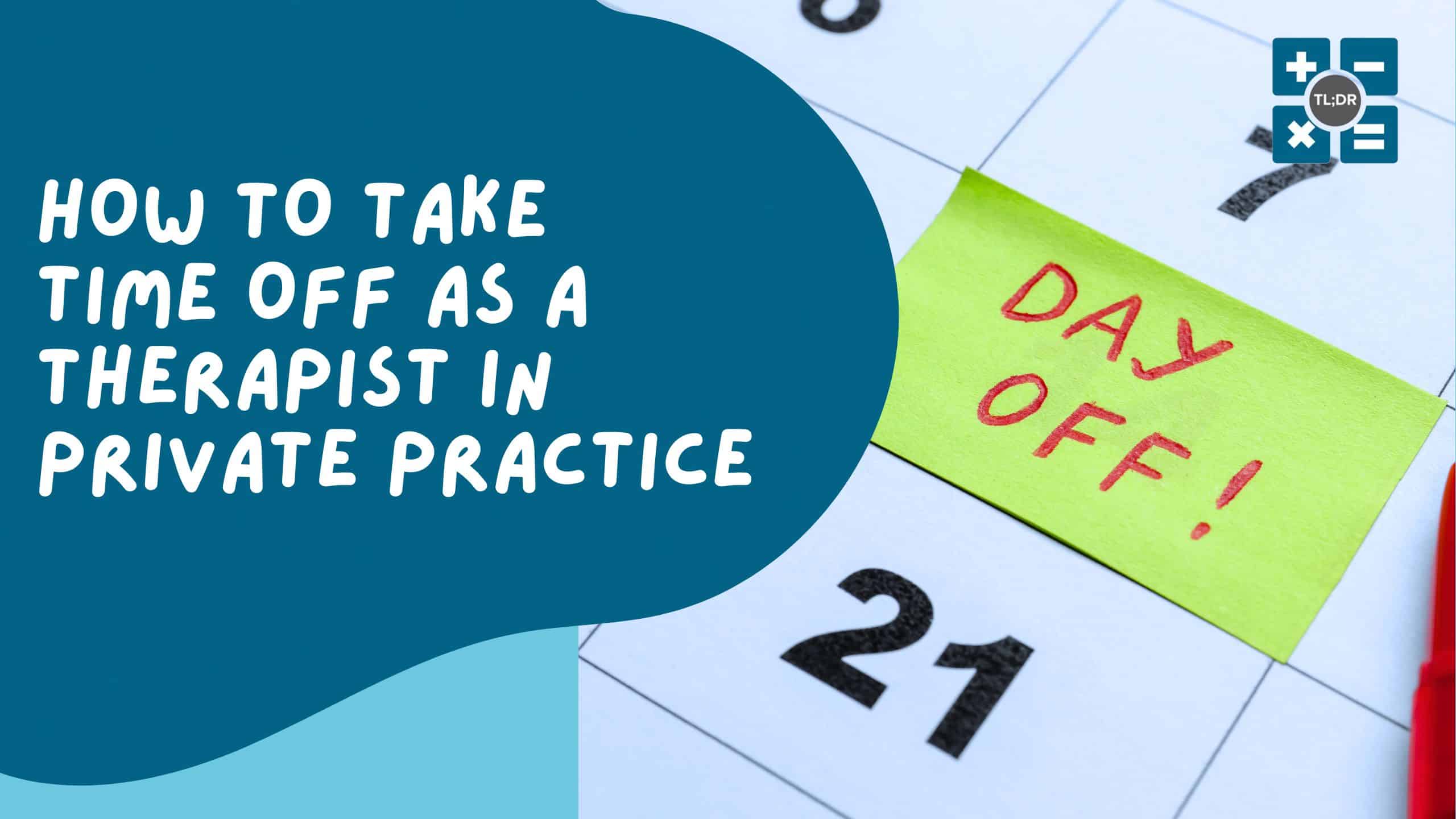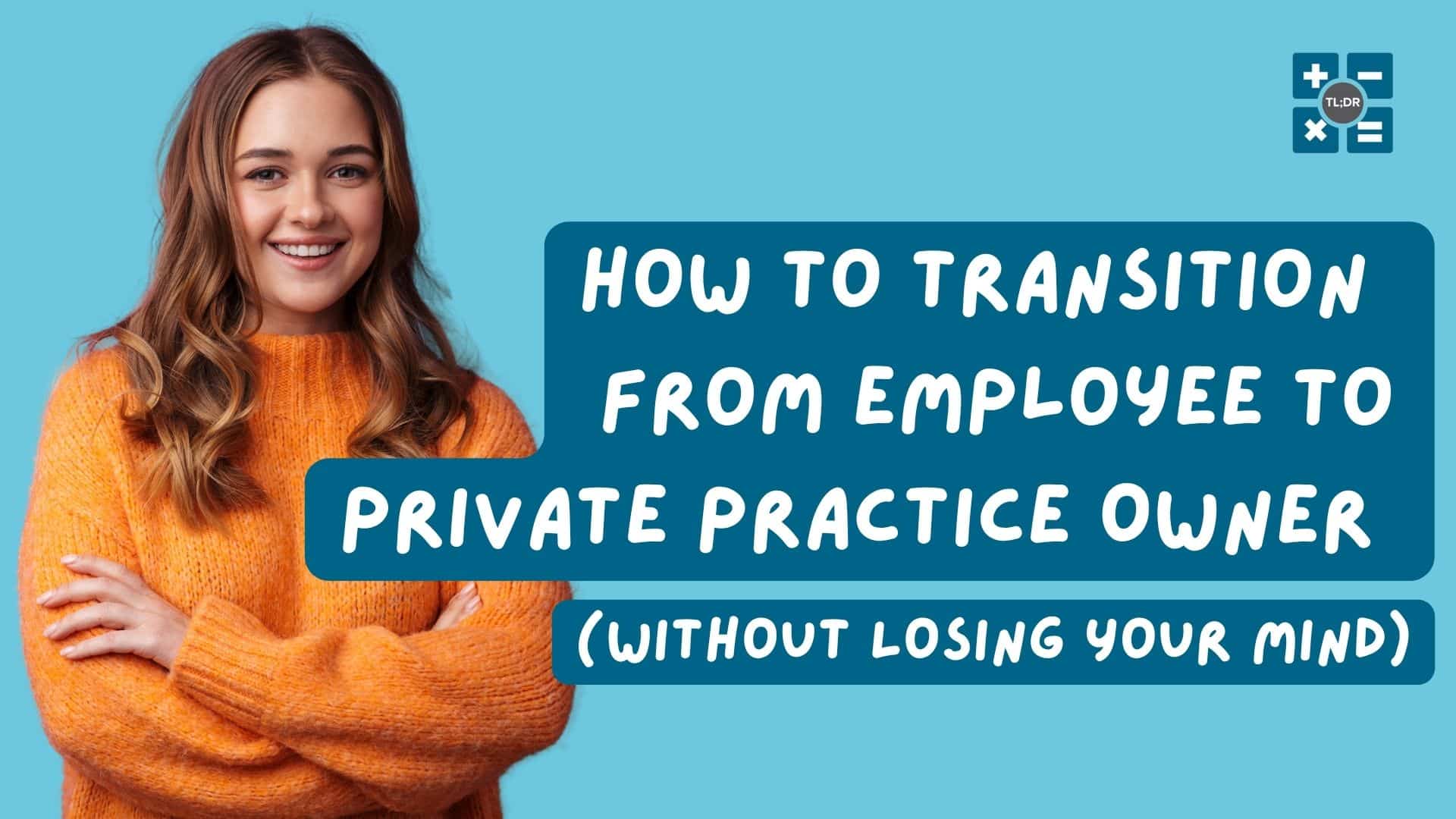Even a well-respected and successful therapist in private practice deserves a much-needed respite away from clients. Everyone has a breaking point. Yes, even seasoned therapists.
But are you ready to take several weeks off your busy schedule to improve your tan lines and nurture the soul? There’s a good chance you’ll think about your clients even when you’re away in the Caribbean or Mediterranean.
Fuss no more because we’ll show you how to take time off as a privately practicing therapist and return to a fulfilling practice after a much-needed mental, emotional, spiritual, and physical recharge.
Taking Time Off in Private Practice
You don’t need an expensive holiday vacation to recharge your mental and emotional batteries. You can observe time off even in your private practice as a therapist. Here are some suggestions.
Be responsible for your self-care
The National Institutes of Health advises therapists and mental health practitioners: “Take care of yourselves.”
Self-care activities help therapists…
- Avoid compassion fatigue
- Prevent stress and burnout
- Softer healthy relationships and boundaries
- Enhance therapeutic and professional effectiveness
- Promote personal growth and development
You can schedule regular breaks between sessions or start your day with self-care intentions. Nurture your social relationships and exercise for several minutes daily. Learning to say “no” is crucial to caring for one’s mental health, too.
Set and observe boundaries
Everyone deserves a sustainable work-life balance, including private-practicing therapists. Setting boundaries lets you enjoy life without undermining your efforts to help clients. So, how?
- Set your boundaries of competence by adhering to the American Psychological Association’s Code of Ethics. Never practice anything the law doesn’t specify.
- Avoid forming multiple relationships with patients. Your task is to help them process their issues, not satisfy sexual urges, set up a business, address a family concern, or other relationships the Code of Ethics discourages.
- Use informed consent and contracts to establish boundaries.
- Observe session time limits and avoid deviating or modifying them.
- Although self-disclosure promotes empathy and trust, be mindful not to be too liberal or use it inappropriately.
- Be mindful of personal feelings.
- Consider how the client perceives touch.
Be an ordinary person, not a therapist, when needed
Therapists intensely desire to help others, even to the point of accommodating inquiries and requests outside clinic hours. While this is commendable, it also predisposes therapists to burnout.
Private practicing therapists must remember they are humans, too. They have lives outside the clinic. It starts with recognizing their role as clinicians is just a part of their being. The earlier they accept this realization, the easier to have time off.
Going on a Much-Needed Holiday Time Off
There will always be instances when only an extended time off can replenish a therapist’s mental and emotional reserves. A four-week holiday is ideal, although you could go on a four-month furlough or a weeklong leave. Whatever the case, here’s our advice.
Plan your therapy rates well in advance
Taking the time off from therapy private practice means you don’t earn an income. Hence, you will want to plan your therapy fees to accommodate those days (or weeks) you are out.
For example, if you intend to be away for eight weeks annually, you might want to adjust your rates to compensate for this 8-week professional inactivity.
Check your calendar and see if you can squeeze as many client sessions per day without undermining the quality of care. Alternatively, you can be more aggressive in promoting your clinic to get more patients before going on vacation.
Plan your holiday, including budget
How much time off do you need from the clinic? Two weeks? Four weeks? How about two months?
Ideally, you should create a comprehensive itinerary to estimate your time off-related expenses. Existing savings should help shoulder some of it.
Note that seasonal celebrations are more expensive. For example, going on a Mediterranean holiday during Christmas can take a huge chunk out of your budget compared to taking time off during the off-peak season.
Notify your clients
Always inform your clients at least twice. Notify them about one to three months before your scheduled time off and alert them again at least a month before.
The initial notification should help clients make the necessary arrangements during your time off.
Arrange coverage
Ask a colleague to pitch in in your absence. The American Counseling Association requires therapists to arrange client continuity of care during service interruptions. Otherwise, you will be legally liable.
Unplug
Time off means all the time to yourself. Ditch the gadgets, unless necessary for personal enjoyment and protection. Don’t talk about therapy patients or a colleague. Now’s your time to unplug and unwind.
Plan your re-entry
Don’t go straight to the clinic the day after your arrival. You will find a message-flooded inbox overwhelming, negating any relaxing effects the time off afforded you. Wait one or two days before resuming private practice.
Final Thoughts
Private practice therapists deserve a break from the mentally- and emotionally-charged clinic environment. It’s their way of maintaining sanity, allowing them to be more helpful to others.
Therapists can observe small measures of time off during practice and spend up to four months on a relaxing and refreshing vacation. Whatever the case, therapists must prepare for everything, including the potential income loss during such activities.





